Gender, myth and capitalism: An academic view of Portal 2
You beat Portal 2, but can you survive the information economy?
Warning: The article you are about to read contains long-winded discourse relating Portal 2 to various academic and political topics, the consideration of which may actually decrease your enjoyment of the game. Consume at your own risk. The views expressed are those of Joe McNeilly, formerly of GamesRadar, who’s currently developing a game design program at a local university and begins teaching this fall.

All the structural ways Portal subverts the FPS genre's gameplay mechanics, discussed here, apply to the sequel. This time around we’re treated to a more fully realized world and a hefty dose of narrative, making Portal 2 more Hero’s Journey than Tetris. The complexities of Portal 2's story and setting invite a deeper look at representations of gender, myth and capitalism.
Mythology
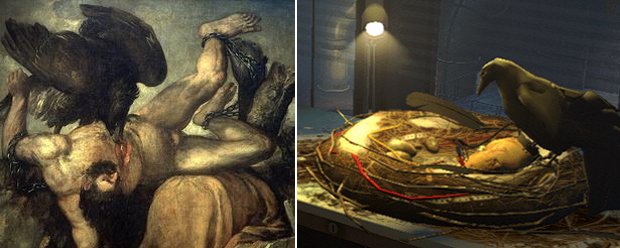
Portal 2 contains a dizzying number of mythological references that weave seamlessly together to create a rich, resonant narrative. Most obvious are the references to the myth of Prometheus, with clear implications for our technology-saturated culture.
When GLaDOS is stripped of control, attached to a potato battery, and cast into the bowels of the earth, a raven swoops in and carries her away. The raven is depicted as a divine messenger in many cultures and myths. Raven also has the power to see into both the material and spiritual worlds simultaneously, a trick that mirrors artificial intelligence's capacity to exist as both hardware and software, logic and emotion, programming and spontaneity. In Norse mythology, Odin has two ravens (named Thought and Memory) who circle the world every morning and return to tell Odin everything that's happening. GLaDOS is an acronym for Genetic Lifeform (Thought) and Disk Operating System (Memory). The nest where Chell eventually finds the raven pecking at PotaDOS is lined with wires and other technological detritus, reinforcing the raven's mystical connection to communication technologies.
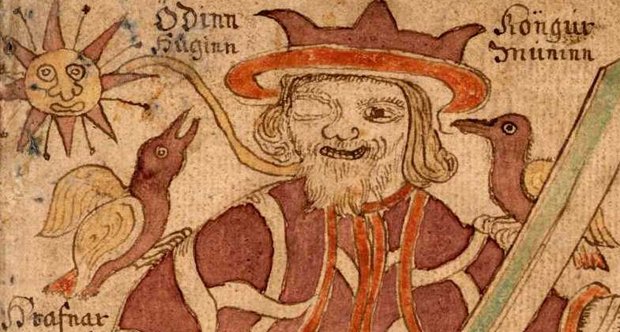
Weekly digests, tales from the communities you love, and more
The importance of the moon and moon dust in Portal 2 further extends the power of the feminine that was established with the subversive core mechanic of the portal gun. Aside from facilitating the creation of portals, moon dust also poisons alpha male Cave Johnson and brings about his untimely demise, suggesting that he was incapable of coexistence with a strong female presence. His assistant and collaborator, Caroline, is another example of this – though he jokes about needing her, he feels the need to constantly dominate her. He keeps her in an inferior position and insists that she be forced to become GLaDOS, a final assertion of his superiority and control.
Chell's Electra Complex
Portal 2 also has hooks into the myth of Electra, and to Freud's theories on psychosexual development. Though Freud has been renounced, reviled and otherwise discounted, his ideas were influential as a starting point for generating new and better ideas and thus are worth looking at.
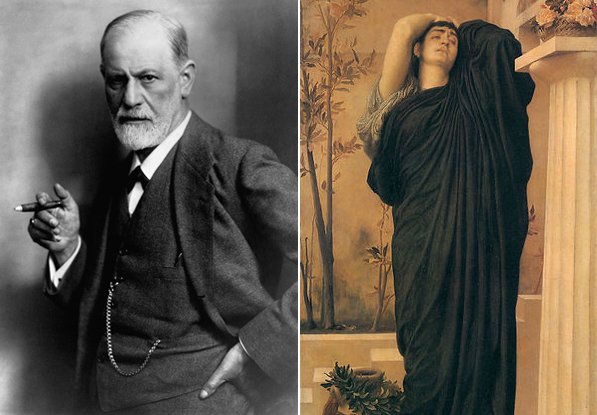
Freud's Electra complex is named after the Greek myth of Electra, who conspired to kill her mother much as Chell and Wheatley plot against GLaDOS. Portal 2 contains a significant amount of evidenceindicating that the mother/daughter relationship between GLaDOS and Chell is more than symbolic – that Chell's mother Caroline actually had her consciousness transferred into a computer to be used as the basis for GLaDOS. Psychoanalytically, Chell's killing of GLaDOS in the first game could be seen as the actions of the infantile id. But when GLaDOS is restored from backup, it gives Chell the opportunity to explore later stages of psychosexual development. In the phallic stage, usually occurring from age 3-6, the Electra complex arises and the girl's libido is redirected from the mother to the father when she realizes she has no penis with which to possess the mother (penis envy). In Portal 2, this transfer is represented by the changing of the AI core from GLaDOS to Wheatley.
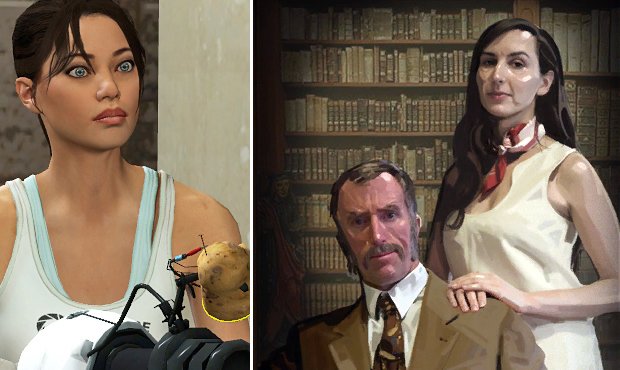
In the context of the possibility space of the game, libido manifests as the solving of puzzles. There's an attempt to divert the libido to the Weighted Companion Cube, but that's just an ironic joke compared to the passion testing ignites. The player, and Chell, experience gratification upon overcoming the game's challenges. Near the end, PotaDOS tells Chell about the overwhelming pleasure she derived from testing and describes how it's engineered into the system. The lust for testing is so strong that when Wheatley doesn't receive sufficient satisfaction from it, he becomes angry and frustrated to the point of making crucial mistakes, much as a king blinded by lust might foolishly lose his kingdom.
As the Electra complex resolves, the mother/daughter relationship becomes less antagonistic as the daughter learns to identify her gender with her mother's and realize that they aren't competitors. Upon installing Wheatley as the AI core, GLaDOS gets stuck on a potato battery, and eventually the potato ends up stuck onto the end of Chell's portal gun. This is analogous to the redirecting of the libido to the father and the acceptance and integration of the mother that occurs during the phallic stage of psychosexual development in Freud's Electra Complex.
When Chell finally exits the Enrichment Center, GLaDOS serenades Chell with a heart-wrenching operatic farewell in which she laments that her little girl is all grown up. Then, in the closing moments, GLaDOS tosses the charred Weighted Companion Cube out the door, which serves as a final farewell and a symbolic freeing of Chell's libido (indicating her newfound maturity.) As an aside, this sendoff also implies that GLaDOS was not totally successful in deleting Caroline, that her ghost still lives on in the machine.
When Chell finally exits the Enrichment Center, GLaDOS serenades Chell with a heart-wrenching operatic farewell in which she laments that her little girl is all grown up. Then, in the closing moments, GLaDOS tosses the charred Weighted Companion Cube out the door, which serves as a final farewell and a symbolic freeing of Chell's libido (indicating her newfound maturity.) As an aside, this sendoff also implies that GLaDOS was not totally successful in deleting Caroline, that her ghost still lives on in the machine.
Gender and weight
Much of the early banter from the resurrected GLaDOS is aimed at Chell's weight, a common theme in antagonistic mother/daughter relationships (Celia and Isabelle in the TV program Weeds, for example). Weight and body image issues are closely tied to self-esteem in our image-conscious culture, with biases so entrenched that overweight women face discrimination in the workplace in the form of difficulty being hired, lower pay and fewer promotions. A recent studyshowed that women who weighed 25 pounds below the average made the most money, suggesting that even women of normal girth are at a disadvantage. The inverse was found to be true for males, with thinner men earning less than heavier ones.
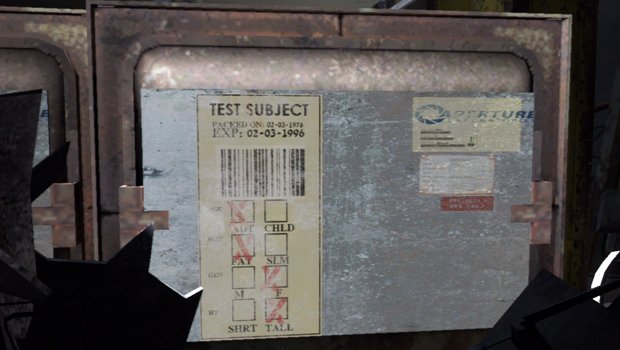
This holds true until a man's weight reaches obesity, at which point the negative effect kicks back in. These statistics clearly don't apply to Gabe Newell, co-founder of Valve. Mocking his weight is a favorite pastime for internet trolls, yet his company makes more money per employeethan Apple or Google. It is perhaps for this reason Portal 2 incorporates the weight issue. In any case, women are under significant societal pressure to be thin and GLaDOS uses this to lash out at Chell.
Later in the game, Wheatley also tries to manipulate Chell as though she were a generic female stereotype. Wheatley, desperate to stop Chell from progressing, attempts to lure her into a pit by claiming a list of gender-coded rewards await her at the bottom. Designer clothes, a handbag, a boy band, possibly a boyfriend, and a pony farm are among the offerings.
If Chell did indeed spend most of her formative years in the Enrichment Center, how strongly has she been imprinted with our society's notions of gender identity? We, the players, bring our own experience and perspective to the game and thus have more reference points to understand Wheatley's and GLaDOS' attempts at gender-based manipulation. Of course, a massive part of Chell's appeal as a character is that she doesn't conform to bland gender stereotypes, which in turn adds comedic value to the conflict.
This holds true until a man's weight reaches obesity, at which point the negative effect kicks back in. These statistics clearly don't apply to Gabe Newell, co-founder of Valve. Mocking his weight is a favorite pastime for internet trolls, yet his company makes more money per employeethan Apple or Google. It is perhaps for this reason Portal 2 incorporates the weight issue. In any case, women are under significant societal pressure to be thin and GLaDOS uses this to lash out at Chell.
Later in the game, Wheatley also tries to manipulate Chell as though she were a generic female stereotype. Wheatley, desperate to stop Chell from progressing, attempts to lure her into a pit by claiming a list of gender-coded rewards await her at the bottom. Designer clothes, a handbag, a boy band, possibly a boyfriend, and a pony farm are among the offerings.
If Chell did indeed spend most of her formative years in the Enrichment Center, how strongly has she been imprinted with our society's notions of gender identity? We, the players, bring our own experience and perspective to the game and thus have more reference points to understand Wheatley's and GLaDOS' attempts at gender-based manipulation. Of course, a massive part of Chell's appeal as a character is that she doesn't conform to bland gender stereotypes, which in turn adds comedic value to the conflict.
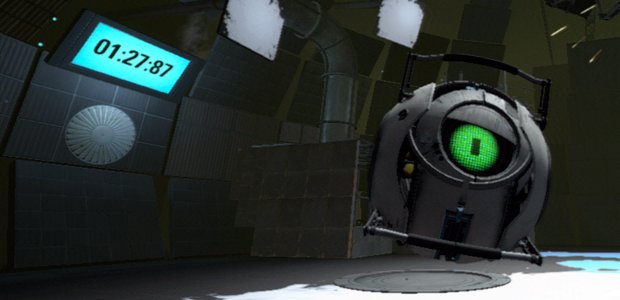
Portal 2 also pokes fun at male stereotypes to great effect. In the final boss fight, one of the corrupted cores rambles on with manly bravado and spouting unctuous gallantries, while early in the game Wheatley shows a fear of penetration when he encounters a phallic data console he has to mount himself on. He actually makes Chell turn and look the other way, joking that he can't do it if she's watching. And of course there's Cave Johnson, Aperture Science CEO, who has a slang term for the male organ as a last name. We'll deal with him in greater depth later on.


